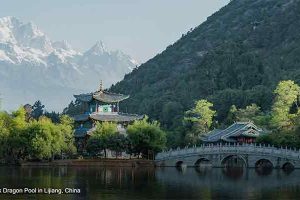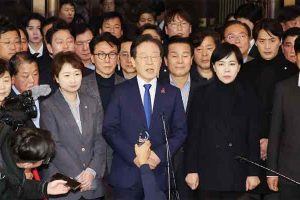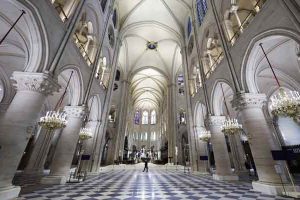
By Imtiaz Ahmed
With Bangladesh experiencing rapid development and expanding infrastructure, the tourism sector is poised to significantly boost the national economy, positioning the country as a prominent tourism hub in South Asia in the coming years. The increasing arrival of both foreign and domestic tourists underscores the sector’s potential. Recognizing that foreign visitors seek comfortable journeys while covering diverse locations within constrained timeframes and budgets, the emphasis on country-wide connectivity, enhanced tourism facilities, and improved infrastructure is crucial. These enhancements will enable foreign tourists to explore the key attractions of Bangladesh efficiently, fostering a greater inclination to choose the country as their destination. Country-wide connectivity and tourism facilities coupled with improved infrastructure will definitely attract the tourists. Bangladesh has a good number of tourist-attractions like the natural beauty of the longest unbroken sea-beach in the world, largest mangrove forests, historically as well as religiously (diversified) important places, pristine riverine areas and many more. If we plan and project properly, we can make Bangladesh a tourism hub which can eventually attract tourists from Malaysia as well. Notably, in 2022, Bangladesh welcomed over half a million international visitors, indicating an increasing trend in this regard.
02. What policy support the government can do to boost the hospitality sector? How does the public-private sector work together to boost the hospitality sector? How can Bangladesh replicate the success stories of tourism stories of India, the Maldives, Nepal and Bhutan, Malaysia, Indonesia, and Singapore?
Over the years, Bangladesh has witnessed a notable increase in the number of international hotels, signalling a positive trend in the hospitality sector. The entry of new brands, as well as on-going developments, underscores the sector’s vitality and growth potential. To position Bangladesh as a prime destination for foreign tourists in Asia, it is crucial to ensure essential facilities such as professionally equipped “On Arrival Welcome Desk/Kiosk(s)” at the international entry ports, easily available/accessible and comfortable transportation, streamlined visa policies, incentivized travel options including regional/global level partnerships with quality tour operators, a diverse culinary scene, additional direct flights, and a range of entertainment activities, including theatres, open stages, musical events, and theme parks.
To enhance competitiveness, embracing Smart Tourism is pivotal. This involves leveraging digital technology and platforms for massive promotional activities, showcasing the positive aspects of Bangladesh, regionally and globally. A public-private partnership can further accelerate the growth of the hospitality sector. Initiatives like simplifying the ease of doing business by reducing time for approvals, establishing a single window for all approvals, providing benefits akin to tourism industries, offering tax incentives and duty exemptions for tourism projects, facilitating easier access to finance, promoting skills development in the tourism workforce, advocating for eco-friendly tourism, and establishing exclusive tourist zones can contribute significantly to this growth.
Notably, despite potential fluctuations in the number of inbound international tourists, the surge in local consumer spending, which was not a prominent trend five years ago, remains a stabilizing force. The robust domestic consumption, particularly in the food and beverage sector, ensures the viability and profitability of hospitality businesses. The higher multiplier effect of the hospitality sector also generates numerous indirect jobs, creating a ripple and cascading effect in the economy that cannot be overlooked. This dual focus on attracting international tourists and nurturing domestic consumption establishes a resilient foundation for the hospitality industry in Bangladesh.
Malaysia, having one of the most well-developed tourism sectors with more than 17% of GDP contribution in the region, could provide us with significant opportunity for joint-venture projects in developing the tourism sector of Bangladesh. Note: 26 million foreign tourists visited Malaysia in the year 2023(up to November) which indicates that it is one of the most attractive tourist destinations in the world). Given the socio-cultural and religious similarity between Bangladesh and Malaysia, I see great opportunity for our tourism industry players to explore partnering opportunities with Malaysian counterparts. The High Commission in Kuala Lumpur will be happy to facilitate such efforts.
03. What is the present trade volume between Bangladesh and Malaysia? What is our target to reach bilateral trade within the next five years?
Malaysia was the first country in the South East Asia region which recognised our independence. Bangladesh is currently the second largest trading partner for Malaysia in South Asia, after India. Bilateral trade between Malaysia and Bangladesh has risen over time which is a manifestation of our strong and friendly bilateral relationship. However, trade is still far less than the existing potential. During FY 2022-23, exports to Malaysia were USD 371.84 million and imports were USD 3.49 billion (thereby, making Malaysia our third largest importing partner after China and India). Bilateral trade between the two countries has been recorded highest ever USD 3.86 Billion in 2022-23 and within the next five years, our target is to reach USD 5 billion in this regard.
Bangladesh is enjoying MFN zero duty for 197 of the tariff lines from Malaysia under the WTO Duty-Free Quota Free (DFQF) program. To minimize the existing trade gap, we already requested the Malaysian Government to grant duty-free market access to some Bangladeshi products under the Global System of Trade Preferences (GSTP), particularly for accumulator batteries, ceramics, footwear, leather and leather products, tea, spices, etc. Bangladesh is also waiting for Malaysia’s response to sign a bilateral Free Trade Agreement (FTA) that will help boost bilateral trade between the two countries. We are also working with the concerned Malaysian stakeholders to establish joint projects/business opportunities in halal economy (where Malaysia has been the global top-ranking country for the past decade), digital/semiconductor industry and the agriculture sector.
04. The Malaysian economy has been going through a slowdown with both exports and imports decreasing. Against backdrop, do you think labour imports into Malaysia will suffer this year?
No, I don’t think so, as recent statistics show that since mid-2022, Malaysian companies have processed more than 500,000 workers’ demand for different sectors through the mission and more than 375,000 Bangladeshi workers have already arrived in Malaysia and engaged in jobs. Our interactions with the local industry players indicate that more demand would be created in the future, when the Malaysian economy would reach full pre-pandemic productivity level. In addition to low/semi-skilled workers, there exists demand for skilled workers and professionals. Note: Malaysia hosts apprx. 1.2 million expatriate nationals which is the second largest concentration after the KSA.
05. The government is working on improving the business environment in Bangladesh. Malaysian companies posted the 15th position in ranks in Bangladesh during 2022 FY, according to the data of Bangladesh Bank. Do you see an increase by Malaysian companies in Bangladesh? What are your observations about the business environment?
It’s a matter of satisfaction to note the current level of Malaysian investment in Bangladesh, primarily in sectors like telecommunications (second largest mobile operator Robi Axiata is majority shareholding by Malaysian company), computer software and IT, textiles, construction, chemicals, power. Axiata, Edra Energy, EDOTCO and KPJ are the prominent Malaysian investors in Bangladesh. Malaysia is the 8th largest investor in Bangladesh and enjoys “Avoidance of Double Taxation (April 1983)” and Investment Treaty for the Promotion and Protection of Investment (October 1994) agreements. Notably, a total of 386 Malaysian companies are registered and doing business smoothly. The total FDI stock of Malaysia in Bangladesh is 850.98 million US$ [June 2023]. We hope the existing trend will continue and more Malaysian investments will flow to Bangladesh.
Apex chambers of both countries (Federation of Bangladesh Chambers of Commerce and Industry and National Chamber of Commerce, FBCCI and Industry Malaysia, NCCIM) are currently working towards establishing the Bangladesh-Malaysia Business Council.
06. The Russia-Ukraine conflict has created a sense of insecurity in the world leading to price hikes of essential commodities. How do you explain the situation?
Bangladesh holds a market share of 6% as one of the largest importers of Malaysian palm oil(crude) in the South Asian region with positive import growth. During the January-November 2023 period, Malaysian palm oil exports to Bangladesh registered a total of 224,393 MT, an increase of 3.13% against the same period of last year. Recently a sharp upward trend in the Malaysian palm oil market has been witnessed and it results in a slight price hike of this essential commodity in Bangladesh.
According to those involved in the Malaysian palm oil sector, the Russia-Ukraine war is the main reason for the increase in the price of edible oil in the international market. Sunflower oil ranks second only to palm oil and soybean oil in global edible oil consumption. Ukraine is the largest producer of sunflower oil in the world, followed by Russia. These two countries control about 78 percent of sunflower oil in world trade. Due to the Russia-Ukraine war, the supply of sunflower oil in the world market continues to decrease at a significant rate. Its impact is visible in the entire edible oil market and the price of edible oil in the international market continues to rise.
07. The people-to-people connectivity between Malaysia and Bangladesh is important in the global context. How can Bangladesh and Malaysia work together on people-to-people connectivity?
We are working on it. We are trying to focus more on public diplomacy. We involve the Malaysian citizens in many of our programmes. Recently, we observed Armed Forces Day, International Migration Day and National Expatriate Day. Many Malaysian stakeholders attended. We are going to observe International Mother Language Day(IMLD), Independence Day and Pohela Boishakh in a big way and project and brand the country to the wider audience in the host country. Malaysia also hosted public diplomacy day, and Bangladesh was invited there. We are contemplating to organize the first ever Malaysia-Bangladesh Youth Summit, Malaysia – Bangladesh Women Leaders’ Forum.
The Mission has been vigorously pursuing Public Diplomacy by effectively using social media platforms i.e., Facebook and Twitter in addition to webpage to disseminate useful information. Promoting public diplomacy through exhibition of art works, films etc. and remaining engaged with academia from universities, think-tanks and civil society representatives remains a priority of the Mission. We intend to organise screening of “Mujib-The Making of a Nation” in the major cities in Malaysia this year as a part of our drive to sensitise the enlightened audience about the life, philosophy and epic struggles of Father of the Nation Bangabandhu Sheikh Mujibur Rahman.
Branding the image of Bangladesh and creating a new narrative in Malaysia showcasing Bangladesh’s journey in the trajectory of development through public diplomacy drive would be an important goal of this Mission. One of the drivers of our humble diplomatic efforts is our keen desire to see that the bilateral narrative moves beyond “migration” and moving in a different direction where trade and investment figure prominently.
08. Bangladesh held the 12th parliament election on January 7, 2024. How does the Malaysia press cover our election?
All the major Malaysian newspapers covered the news of the Bangladesh Election generously. They mainly picked the news from International News agencies like AFP and Reuters apparently without their own assessments. Hon’ble Prime Minister of Malaysia Mr. Anwar Ibrahim congratulated Hon’ble Prime Minister Sheikh Hasina on her re-election as the Prime Minister of Bangladesh for the fourth consecutive term. Malaysian Foreign Minister also congratulated the Hon’ble Foreign Minister of Bangladesh. Earlier, just after the election, Malaysian High Commissioner to Bangladesh called on the Hon’ble Prime Minister and congratulated her for winning in the election on behalf of the Malaysian Government……..
Meanwhile, the government appointed Ambassador Md Shameem Ahsan, the serving Bangladesh envoy to Italy, as the next high commissioner of Bangladesh to Malaysia.
He replaced Ambassador Md Golam Sarwar in this capacity, reads a press statement of the foreign ministry.
Shameem belongs to the 11th batch of BCS (Foreign Affairs) cadre.
He joined Foreign Service in 1993 and served extensively both at home and abroad ever since.
In his illustrious diplomatic career, apart from his current assignment, he also served as the high commissioner of Bangladesh to Nigeria, and consul general of Bangladesh in New York; as well as in various capacities at such Bangladesh missions as Kuwait, Doha, Nairobi, Rome and Washington DC.
Born in Pirojpur, Shameem completed his BSS and MSS in Political Science from University of Dhaka.
He also completed several professional training courses both at home and abroad.
In his personal life, he is married and blessed with a daughter.






